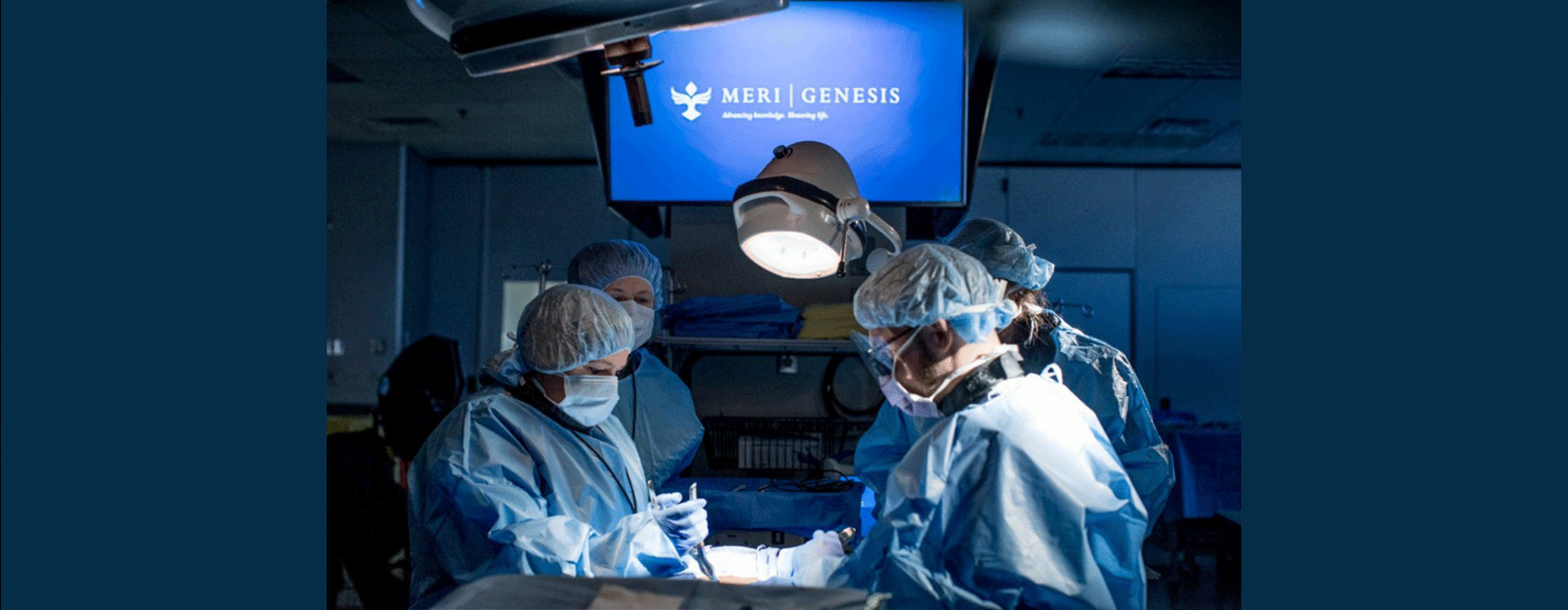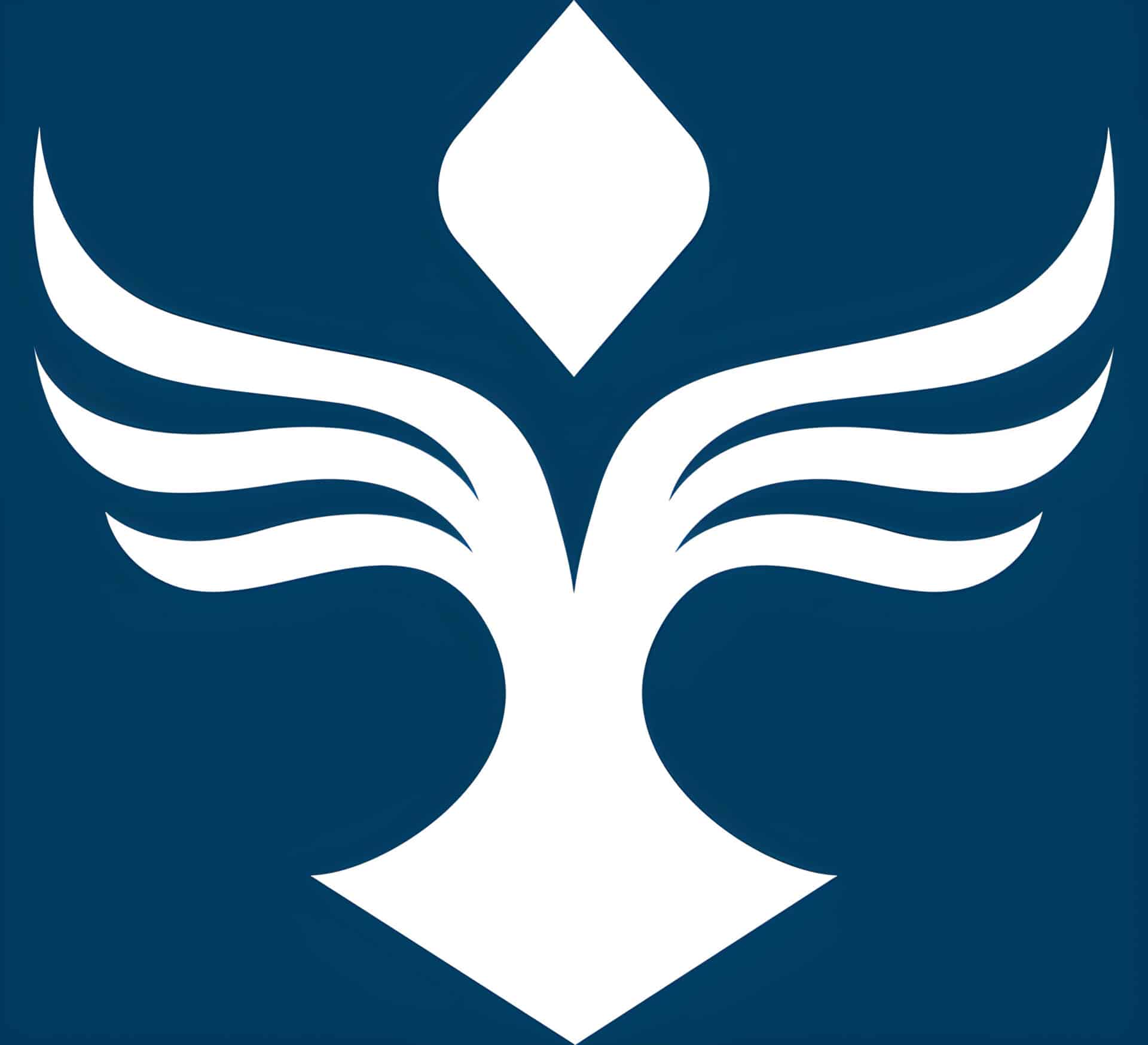Partners MERI and Genesis push past COVID

05.23.22
The Daily Memphian
Each year, more than 28,000 medical professionals from 30 countries receive state-of-the-art, hands-on education and medical simulation inside a nondescript office building located in the Memphis Medical District.
The Medical Education and Research Institute is a medical teaching, training school, bioskills lab located at 44 S. Cleveland St.
MERI, as the institute is known, was established in 1994 by Memphis neurosurgeon Kevin T. Foley, the inventor of many medical devices and several inventions that have advanced the field of minimally invasive spine surgery.
Thanks to its unique ability to offer both patient simulators and anatomic specimens, MERI provides operating room training experience in which medical professionals learn about new techniques, technologies and devices.
The specimens are procured by its partner, Genesis Legacy Whole Body Donation Foundation, a non-transplant anatomic donation organization that shares space with MERI.
“It’s a symbiotic relationship; one would not exist without the other,” said Robin Bozarth, Genesis manager. “You have the bio-skills facility, then the donation program, which supports that hands-on education and training.
“Our community in our own backyard is pretty unaware we exist, which is why we’re working diligently right now to spread awareness of the program in all 18 states in which we take donors, but especially in the Mid-South.”
Genesis receives 80 to 100 donor bodies per month, and most donations stem from word of mouth.
“The CDC classified COVID-19 as a transmissible virus that would exclude a donor at the time of death if they died from COVID or COVID complications within a period of 14 to 28 days,” Bozarth said. “Now, that’s down to a 14-day period as COVID has really dissipated.
“We had to adapt and overcome that in order to achieve our mission while at the same time being compliant with CDC and local guidelines,” Bozarth said. “For five weeks, from March to May of 2020, we had to turn every donor away, and that was heartbreaking.”
Individuals can become donors through pre-registration — also called first consent — in which the donor registers himself or herself. Genesis has more than 17,000 pre-registered donors.
Whole body donation can also occur through a donor’s legal next of kin or an authorizing party who has disposition rights at the time of death.
Unlike many organizations that charge for costs associated with transportation, embalming or the return of cremated remains, Genesis accepts donations at no cost to the donor family.
They also provide the donor family with a research letter detailing how their loved one’s donation helped further medical education and research.
Genesis uses many tactics to reach prospective donors and donor families, including conventions for hospices, funeral homes, church groups, coroner’s meetings and health care trade shows. They also enlist pre-registered donors to speak in their communities.
“We support a lot of local community outreach to help spread that awareness of whole body donation,” Bozarth said. “We work with Memphis Police Department, Memphis Fire Department, local EMS, and we work closely with University of Tennessee Health Science Center to train their residents, nurse practitioners and forensic nurses. We’ve been in business for 28 years, but only in the last five to six have we started pushing with outreach and awareness as far as social media and other avenues.”
In addition to emphasizing the importance of whole body donation, the partners continue to educate the community about the positive impact of medical education on patient care.
For example, if a surgeon learns how to perform a knee replacement at MERI, that surgeon will harness that skill throughout his or her career to alleviate pain and improve mobility and quality of life for numerous patients.
”Unless you’re part of the medical community and acquainted with medical research and development, the MERI is unknown,” said Tony Bernil, Operations and Development manager at MERI. “Memphis is under-appreciated in terms of its importance in the medical world, from medical research and development to study opportunities.”
Chris Bond, an employee of a local medical device company, first visited MERI to attend a training class for surgeons in 1996. Since then, he has continued his involvement with the institute’s educational programs.
“At MERI, doctors have the opportunity to learn new techniques and solutions for procedures by actually doing the procedures,” he said. “As innovation in patient care quickly grows, opportunities to learn new techniques allow doctors to treat their patients with the best care available.”
When Bond’s father died several years ago, he donated his remains to the Genesis Foundation to support medical education and scientific development.
“The team at the Genesis Foundation was supportive and comforting in our time of loss while making the donation seamless for our family,” Bond said. “The level of respect and appreciation that MERI and the Genesis Foundation give to the donors and families is outstanding.”
-Aisling Maki
